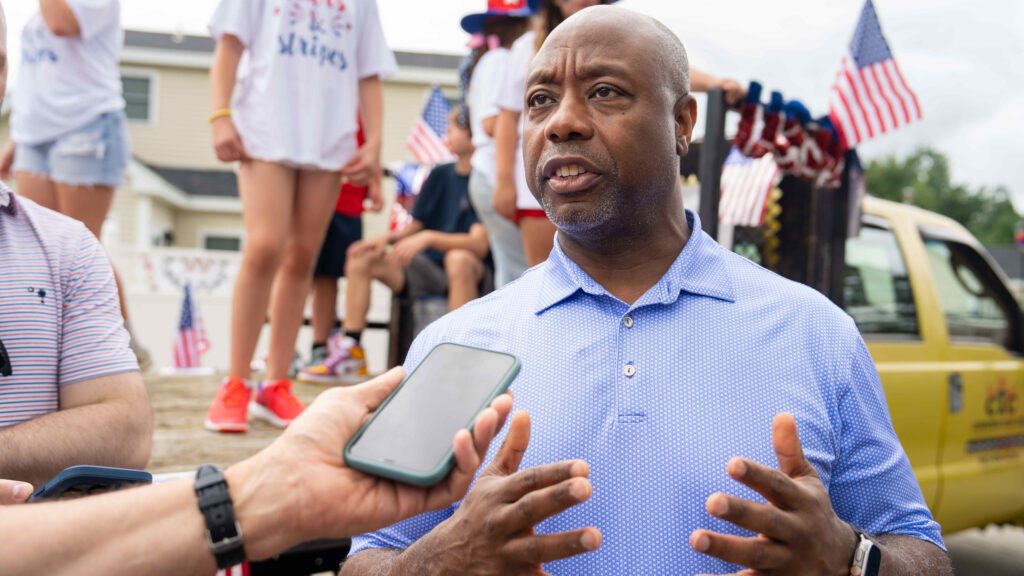Sen. Tim Scott’s (R-SC) presidential candidacy has been dealt a major blow as his primary super PAC announced the cancellation of millions of dollars’ worth of television advertisements this autumn, signaling that donors are all but abandoning Mr. Scott on the race to the White House. The Trust in the Mission PAC memo to donors confirmed the cutting of “millions of dollars in television ads” and the redirection of funds to Scott’s ground game in early primary states. The cancellation of the TV ads – combined with Scott’s poor fundraising performance of late – sits as the latest nail in the coffin of an already floundering candidacy.
Tim Scott’s super PAC is canceling the majority of planned fall ads
https://t.co/5B0pA5SfAp— Daily Caller (@DailyCaller) October 16, 2023
The cancellation of paid advertising comes as polls show Scott at an underwhelming 2% in the most recent RealClearPolitics average; clearly, expensive ad campaigns are not shifting the needle in the polls. According to The New York Times, Trust in the Mission PAC has deemed the electorate disinterested in a Trump alternative, making paid advertising “a waste of money” until closer to voting. Some of the money from these cancelled ads will be redirected to grassroots door knocking, conduit fundraising, event hosting, and earned media efforts, the memo stated.
The super PAC’s co-chairman, Rob Collins, took a shot at former South Carolina Governor Nikki Haley, saying that “no serious person thinks a moderate will win this primary no matter how many elite insiders champion their candidacies.” This insider versus outsider rhetoric from the Scott campaign heightens tensions within the Republican Party establishment. Scott’s donors have lost interest in his campaign far too early, evidenced by their offloading of campaign funds, the report noted.
The Times report also suggests that the PAC’s cancellation of “millions of dollars in television ads” could be in excess of $15 million, further highlighting the extent of Scott’s uphill battle for the 2024 Republican nomination. In a news environment dominated by two wars and a chaotic scrum over the Speakership, TV money will simply be wasted, Collins argues. “Voters are tuning out a political race where no one will caucus for more than three months,” the memo said.
Scott’s washing out of the 2024 presidential race is likely to pour gasoline on an already raging fire, spurring a competitive and frenzied contest for the Republican nomination. The cancellation of the TV ads can only be perceived as a significant and final nail in the coffin of a campaign that has struggled to gain traction. Despite Scott’s claims of being a rising star in the GOP, his donors appear to have different ideas. For Scott, it seems that the road to the White House is a dead end.



